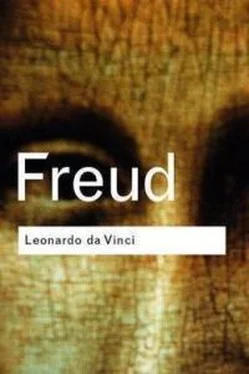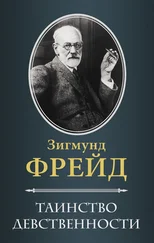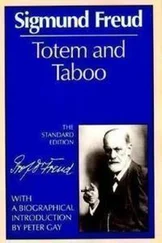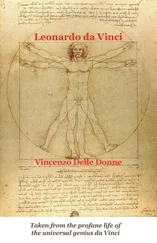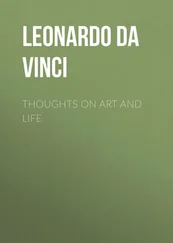"I am going to Milan to look after the affairs of my garden … order two pack–sacks to be made. Ask Boltraffio to show thee his turning–lathe and let him polish a stone on it.—Leave the book to master Andrea il Todesco." [42] Leonardo thus behaves like one who was in the habit of making a daily confession to another person whom he now replaced by his diary. For an assumption as to who this person may have been see Merejkowski, p. 309.
Or he wrote a resolution of quite different significance: "Thou must show in thy treatise that the earth is a star, like the moon or resembling it, and thus prove the nobility of our world." [43] M. Herzfeld: Leonardo da Vinci, 1906, p. 141.
In this diary, which like the diaries of other mortals often skim over the most important events of the day with only few words or ignore them altogether, one finds a few entries which on account of their peculiarity are cited by all of Leonardo's biographers. They show notations referring to the master's petty expenses, which are recorded with painful exactitude as if coming from a pedantic and strictly parsimonious family father, while there is nothing to show that he spent greater sums, or that the artist was well versed in household management. One of these notes refers to a new cloak which he bought for his pupil Andrea Salaino: [44] The wording is that of Merejkowski, 1. c. p. 237.
Silver brocade Lira 15 Soldi 4
Crimson velvet for trimming " 9 " 0
Braid " 0 " 9
Buttons " 0 " 12
Another very detailed notice gives all the expenses which he incurred through the bad qualities and the thieving tendencies of another pupil or model: "On 21st day of April, 1490, I started this book and started again the horse. [45] The equestrian monument of Francesco Sforza.
Jacomo came to me on Magdalene day, 1490, at the age of ten years (marginal note: thievish, mendacious, willful, gluttonous). On the second day I ordered for him two shirts, a pair of pants, and a jacket, and as I put the money away to pay for the things named he stole the money from my purse, and it was never possible to make him confess, although I was absolutely sure of it (marginal note: 4 Lira … )." So the report continues concerning the misdeeds of the little boy and concludes with the expense account: "In the first year, a cloak, Lira 2: 6 shirts, Lira 4: 3 jackets, Lira 6: 4 pair of socks, Lira 7, etc." [46] The full wording is found in M. Herzfeld, 1. c. p. 45.
Leonardo's biographers, to whom nothing was further than to solve the riddle in the psychic life of their hero from these slight weaknesses and peculiarities, were wont to remark in connection with these peculiar accounts that they emphasized the kindness and consideration of the master for his pupils. They forget thereby that it is not Leonardo's behavior that needs an explanation, but the fact that he left us these testimonies of it. As it is impossible to ascribe to him the motive of smuggling into our hands proofs of his kindness, we must assume that another affective motive caused him to write this down. It is not easy to conjecture what this motive was, and we could not give any if not for another account found among Leonardo's papers which throws a brilliant light on these peculiarly petty notices about his pupils' clothes, and others of a kind: [47] Merejkowski 1. c.—As a disappointing illustration of the vagueness of the information concerning Leonardo's intimate life, meager as it is, I mention the fact that the same expense account is given by Solmi with considerable variation (German translation, p. 104). The most serious difference is the substitution of florins by soldi. One may assume that in this account florins do not mean the old "gold florins," but those used at a later period which amounted to 1–2/3 lira or 33–1/2 soldi.—Solmi represents Caterina as a servant who had taken care of Leonardo's household for a certain time. The source from which the two representations of this account were taken was not accessible to me.
Burial expenses following the death of Caterina 27 florins
2 pounds wax 18 "
Cataphalc 12 "
For the transportation and erection of the cross 4 "
Pall bearers 8 "
To 4 priests and 4 clerics 20 "
Ringing of bells 2 "
To grave diggers 16 "
For the approval—to the officials 1 "
―――
To sum up 108 florins
Previous expenses:
To the doctor 4 florins
For sugar and candles 12 "
16 florins
―――
Sum total 124 florins
The writer Merejkowski is the only one who can tell us who this Caterina was. From two different short notices he concludes that she was the mother of Leonardo, the poor peasant woman from Vinci, who came to Milan in 1493 to visit her son then 41 years old. While on this visit she fell ill and was taken to the hospital by Leonardo, and following her death she was buried by her son with such sumptuous funeral. [48] "Caterina came in July, 1493."
This deduction of the psychological writer of romances is not capable of proof, but it can lay claim to so many inner probabilities, it agrees so well with everything we know besides about Leonardo's emotional activity that I cannot refrain from accepting it as correct. Leonardo succeeded in forcing his feelings under the yoke of investigation and in inhibiting their free utterance, but even in him there were episodes in which the suppression obtained expression, and one of these was the death of his mother whom he once loved so ardently. Through this account of the burial expenses he represents to us the mourning of his mother in an almost unrecognizable distortion. We wonder how such a distortion could have come about, and we certainly cannot grasp it when viewed under normal mental processes. But similar mechanisms are familiar to us under the abnormal conditions of neuroses, and especially in the so–called compulsion neurosis . Here one can observe how the expressions of more intensive feelings have been displaced to trivial and even foolish performances. The opposing forces succeeded in debasing the expression of these repressed feelings to such an extent that one is forced to estimate the intensity of these feelings as extremely unimportant, but the imperative compulsion with which these insignificant acts express themselves betrays the real force of the feelings which are rooted in the unconscious, which consciousness would wish to disavow. Only by bearing in mind the mechanisms of compulsion neurosis can one explain Leonardo's account of the funeral expenses of his mother. In his unconscious he was still tied to her as in childhood, by erotically tinged feelings; the opposition of the repression of this childhood love which appeared later stood in the way of erecting to her in his diary a different and more dignified monument, but what resulted as a compromise of this neurotic conflict had to be put in operation and hence the account was entered in the diary which thus came to the knowledge of posterity as something incomprehensible.
It is not venturing far to transfer the interpretation obtained from the funeral expenses to the accounts dealing with his pupils. Accordingly we would say that here also we deal with a case in which Leonardo's meager remnants of libidinous feelings compulsively obtained a distorted expression. The mother and the pupils, the very images of his own boyish beauty, would be his sexual objects—as far as his sexual repression dominating his nature would allow such manifestations—and the compulsion to note with painful circumstantiality his expenses on their behalf, would designate the strange betrayal of his rudimentary conflicts. From this we would conclude that Leonardo's love–life really belonged to that type of homosexuality, the psychic development of which we were able to disclose, and the appearance of the homosexual situation in his vulture–phantasy would become comprehensible to us, for it states nothing more or less than what we have asserted before concerning that type. It requires the following interpretation: Through the erotic relations to my mother I became a homosexual. [49] The manner of expression through which the repressed libidio could manifest itself in Leonardo, such as circumstantiality and marked interest in money, belongs to those traits of character which emanate from anal eroticism. Cf. Character und Analerotik in the second series of my Sammlung zur Neurosenlehre, 1909, also Brill's Psychoanalysis, its Theories and Practical Applications, Chap. XIII, Anal Eroticism and Character, Saunders, Philadelphia.
Читать дальше
